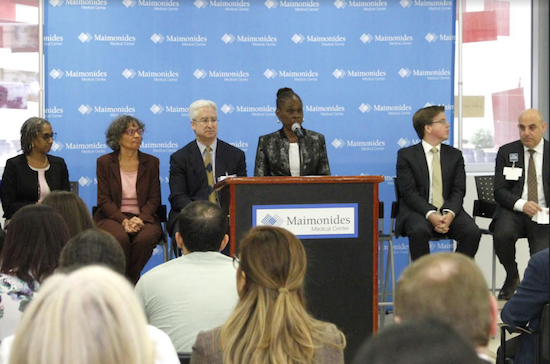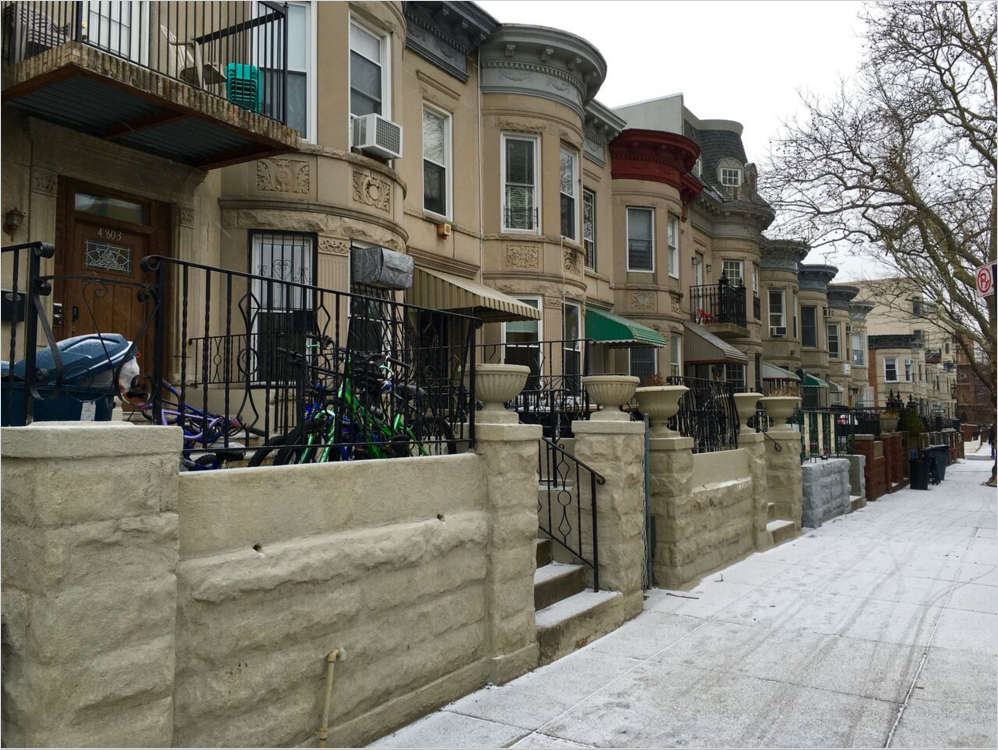Maimonides joins city’s opioid treatment ‘relay’ team

New York City First Lady Chirlane McCray tells the audience at Maimonides Medical Center that getting help from a Wellness Advocate “gives hope and strength to a survivor.” Photo courtesy of Maimonides Medical Center
Maimonides Medical Center has become part of a relay team, not to win gold medals in track and field, but to save lives.
New York City’s first lady Chirlane McCray and Health Commissioner Dr. Mary T. Bassett recently came to the hospital at 4802 10th Ave. in Borough Park to announce that the hospital’s Emergency Department is now a “relay” site in Mayor Bill de Blasio’s effort to treat non-fatal opioid overdoses.
Under the relay program, experts known as “wellness advocates” are dispatched to hospitals to assist patients and their families in the hours after a non-fatal opioid overdose.
